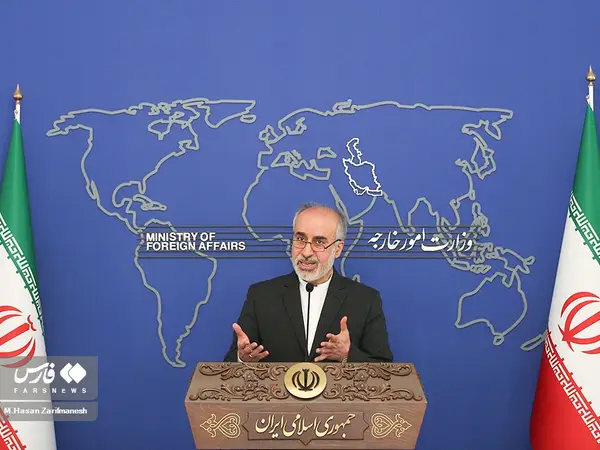Iran’s Foreign Ministry says it will make the best use of Iraq’s relations with the United States for the resumption of talks to revive the 2015 nuclear deal.
During his weekly press conference on Monday, Foreign Ministry spokesman Nasser Kanaani referred to a meeting with Iraqi Foreign Minister Fuad Hussein and United States Special Envoy for Iran Robert Malley, and said Tehran uses all diplomatic capacities to realize the Islamic Republic’s national interests.
“Some governments have already played a role in this regard in good faith. Some governments are interested in using the capacity of their relations with both sides, and we will always welcome these joint efforts in good faith,” he added. “If the Iraqi government wants to play a role in this area, we take it seriously as the country is our friend, neighbor and brother, and we will use the capacities of the Iraqi government.”
Tehran, facing serious economic and political challenges insists that there is still a chance to restore the Joint Comprehensive Plan of Action, the JCPOA, while the US, which withdrew from the original deal under former US president Donald Trump, has repeatedly announced that it is no longer focused on the deal.
Iranian Foreign Minister Hossein Amir-Abdollahian held a phone call with his Iraqi counterpart on Friday, a day before the Iraqi foreign minister met with Malley. According to the official readout of the meeting by the Iraqi foreign ministry, Hussein and Malley discussed the Iran nuclear talks and the European's attitude toward suspending them. Malley praised Iraq's diplomatic role and the initiatives it launched to ease the tension in the region, the statement added.
Since the current wave of antigovernment protests engulfed Iran in September, the Biden administration has announced that talks to revive the nuclear deal are not their priority anymore. Considering the international outcry over the Islamic Republic’s crackdown on dissent and human rights violations as well as the growing military ties between Tehran and Moscow, including from the US Congress, the prospects of saving the JCPOA is dimmer than ever.
Moreover, Kanaani expressed Iran’s readiness to exchange prisoners with the US in an “unconditional” manner without linking the swap to other issues, complaining that despite Iran’s goodwill, Washington has not taken an encouraging measure in this regard.
On Saturday, Hussein -- accompanied by Central Bank of Iraq Governor Ali al-Allaq -- met with Secretary of State Antony Blinken, Deputy Secretary of the Treasury Wally Adeyemo, and many other US officials and business leaders to discuss a host of economic issues. But an urgent issue was how to prevent Iran from using Iraq’s banking ties with the United States to launder US dollars and circumvent Washington’s sanctions.
In an interview with Al-Monitor in Washington on Sunday, Hussein said that "It’s no secret that I am in touch with both Iranian and American officials,” adding that “Both sides trust us, and that’s a good thing... It’s in Iraq’s interest that there be less tension between Washington and Tehran."
“I will continue these contacts,” said Hussein. “The US is an important ally, and Iran is an important neighbor, with whom we share many common interests, including a border, religion, culture, economics and trade. I hope both sides will start talking to each other again, but that’s their decision,” he added.
Elsewhere in his remarks, Kanaani touched on the issue of relations between Tehran and Riyadh, stressing the need for diplomacy to return the ties between Saudi Arabia and Iran back on track. Tehran welcomes any mediation by the Iraqi government and hopes that the efforts would improve relations between Saudi Arabia and Iran, he said.
